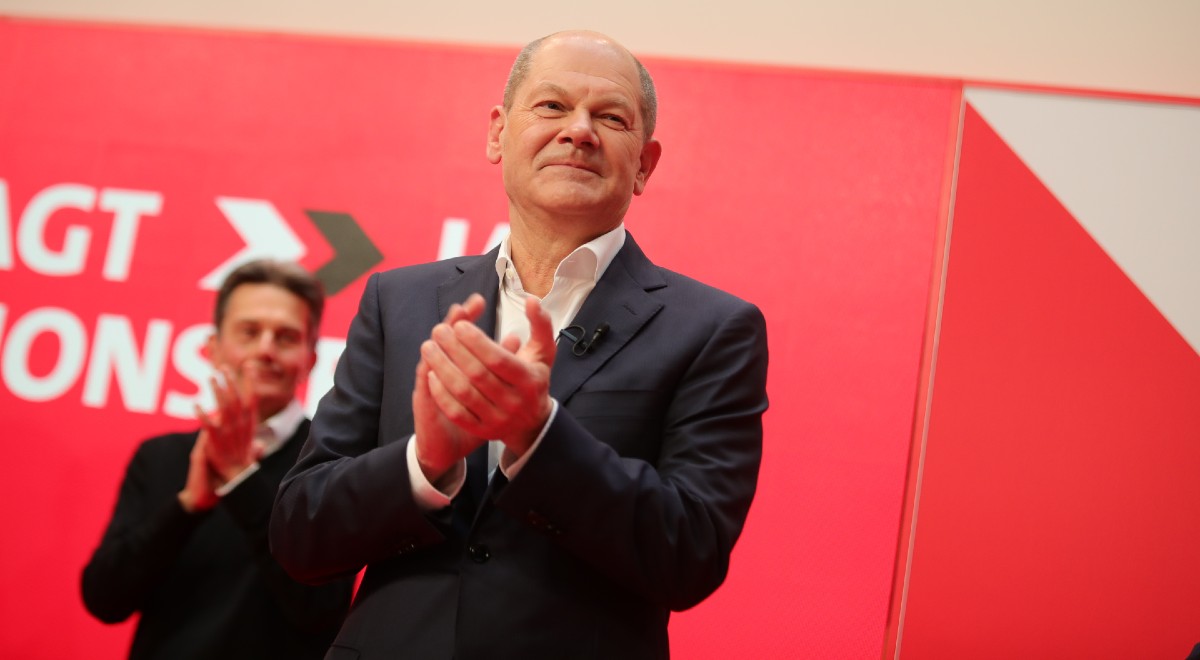At today’s meeting of the Bundestag, Olaf Scholz will be elected Chancellor of Germany. Thus, the 16-year reign of Angela Merkel, who will step down, is coming to an end.
The election of Olaf Scholz as Chancellor requires the consent of a majority of the members of the Bundestag. The coalition parties SPD, FDP and Greens have 416 members. This means that the appointed head of the federal government could afford even 47 votes against.
Following the announcement of the vote, Olaf Scholz and his ministers will approve the appointment at Bellevue Castle by German President Frank-Walter Steinmeier. Then the new government will be sworn in in parliament.
After being sworn in, Olaf Scholz will meet with Angela Merkel. In the Federal Chancellery, his predecessor will officially hand over power to him.
The SPD politician announced that he will make his first foreign visit to Paris as chancellor.
Coalition agreement
On Tuesday, all parties that will form Germany’s new government signed a coalition agreement at the end of November called “Don’t Be Afraid to Get More.” All ministers have already been appointed.
In a coalition agreement negotiated in the weeks following the Bundestag elections in September, the SPD, Greens and FDP pledged, among other things, more serious climate protection measures and industry restructuring. Germany is expected to receive 80 percent of its electricity from renewable energy sources by 2030.
In foreign policy, the attention of commentators is drawn to the question of plans for the development of the EU into a “federal European state”.
New rules in the real estate market
The minimum wage is expected to rise rapidly from the current 9.60 euros to 12 euros, the long-term unemployed will receive so-called civil income, 400,000 new apartments will be generated annually, and in areas with a difficult housing market, lower limits for allowable rent increases are set. The new government also wants to lower the voting age in federal elections from 18 to 16 and make cannabis available to adults for consumption in licensed stores in the future.
The controversial ban on advertising of abortion (article 219a of the Criminal Code) should be abolished. “Doctors should be able to provide public information about abortion without fear of prosecution,” the agreement says.
Separation of powers in government
The full composition of the government was announced on Monday when the SPD announced the appointment of ministers. So, the SPD is responsible for health in the new federal government, and the minister will be Karl Lauterbach (health expert in the SPD parliamentary group), internal affairs – Nancy Feather (SPD president in Hesse), protection – Christine Lambrecht (formerly federal government), construction – Clara Geywitz (SPD politician from Potsdam), economic cooperation and development – Svenja Schulze (former federal minister for the environment), labor and social affairs – Hubertus Heil (former head of the ministry), head of the Chancellery – Wolfgang Schmidt.
Annalena Baerbock will be the Foreign Ministry on behalf of the Greens, the Vice-Chancellor Robert Habeck will be the Economy and Climate Ministry, Anne Spiegel will represent the Family Ministry and Steffi Lemke will represent the Environment Ministry. Cem Ozdemir becomes Minister of Agriculture.
The FDP appointed Christian Lindner as Minister of Finance, Volcker Wissing as Minister of Transport, Marko Buschmann as Minister of Justice and Bettina Stark-Watzinger as Minister of Education.

